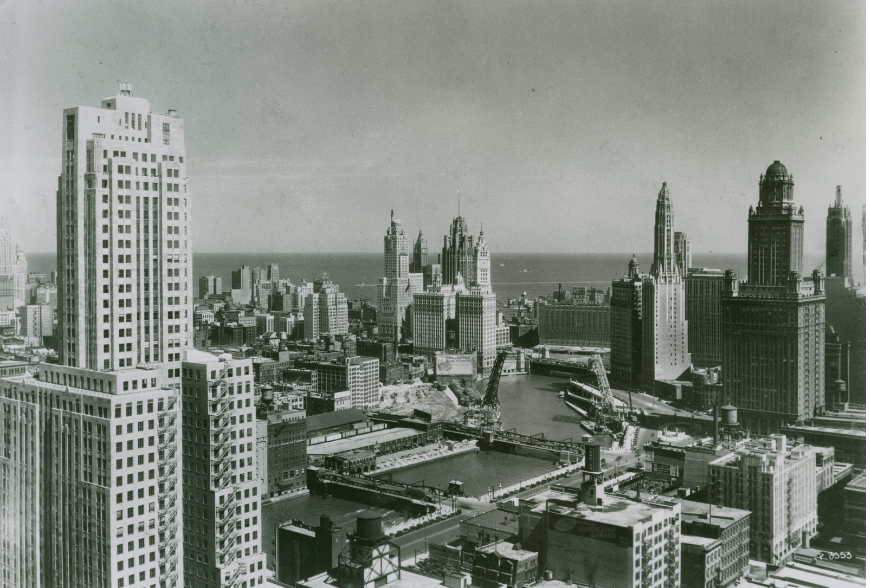An Unconventional View of the American Dream
The American Dream is something we have all heard of: a high-paying job, a family, a good life for your children. But who is entitled to this dream? It isn’t the everyday American, and it may not even be for native-born Americans at all.
“Do you think you have achieved the American Dream?” I asked. I was speaking to David Wassong, a second-generation American who works as the Managing Director and Co-Head of Private Equity for one of the richest New York families in history.
“You know what? Let me ask you the question. How do you define the American Dream?” He replied.
To answer his question, I defined the American Dream from what I knew. I brought up the idea of an equal playing field, the ability to achieve given sufficient effort, and finally the idea of a perfect meritocracy. “That’s how it was defined to us in class,” I said finally.
“See, that’s interesting—” he began. “I define the American Dream differently.”
David’s story began with his father, Dan K. Wassong, who grew up in a fairly affluent neighborhood in Warsaw. He was an only child and was raised in a Jewish household. Dan’s father held a stable position as a physician, and his mother tended to the house. He was nine years old when Hitler’s armies invaded Poland. Dan’s father decided to flee the war and bring the family to Israel. In doing so, they left their house, wealth, and most of their possessions behind.
While in Israel, Dan Wassong fought in the Irgun, a Zionist paramilitary organization. Following the disbanding of the Irgun, Dan was sent to America by his stepfather in 1950 to go to university, eventually attending Case Western Reserve. After graduating, he quickly found a job at an electronics sales organization, and a few years later, Dan settled at a cosmetics supply company called Del Laboratories, Inc. He stayed at Del Laboratories for over 45 years, initially as the Head of Sales and eventually becoming Chairman, President, and CEO.
Dan had his only son, David, in the early 1970s. David Wassong attended the University of Pennsylvania and Wharton Business School. David had a few financial/corporate jobs before finally settling at his current position in 1998.
“I define the American Dream as someone coming here from somewhere else, because they have a dream of succeeding in America,” said David.
When asked about whether the American Dream appeals more to internationals than to native-born Americans, he responded, “That’s always the way it’s been interpreted for me because as a small child, that’s what my parents said they came here for. To chase the American Dream.”
Where this ideal falls short, however, is for native-born Americans— specifically lower-class Americans. Donald Trump ran his 2016 campaign with an immigration crackdown as his centerpiece, appealing to those who felt their jobs were being taken by “illegal aliens.” In a recent CNN focus group, a Trump voter defended his ballot, saying it was a “wise move” to vote for Trump, and a smart choice specifically “for working Americans who were tired of their jobs being taken away, shipped overseas or taken by illegals.” Partly manufactured by our President, there is trepidation in America in regards to immigration— many Trump voters and working-class Americans believe that their American Dream is being stolen by immigrants. In their eyes, the ability to progress in the supposed perfect meritocracy of America is being marred by an influx of immigrants, and Trump presents an apparently perfect solution.
In 2017, a British TV channel aired a documentary series titled Trump: An American Dream. A show seeking to encapsulate Trump’s supposedly “extraordinary” journey to becoming the man he is and to illustrate how he achieved the American Dream. By David’s definition, however, Trump has not attained the American Dream, nor has David.
“By my definition, I have not achieved the American Dream because I was already here and I had a huge head start.” David has seen his fair share of success, but even being the son of an immigrant, he believes he is unable to attain the American Dream. “And even if you defined it as the way you did, I guess, as a result of hard work, I have succeeded. I started with such an advantage— my father came here with nothing and had huge success. That for me is the American Dream, not someone like you or me that starts on second or third base.”
For some, the American Dream is a lifetime goal and an ever-present reminder that they can be great, but David Wassong is content with the fact that he can never and will never achieve his definition of it. For many, the American Dream is simply the opportunity to come to America.
This dream challenges Trump’s American Dream— his Dream is not for immigrants at all, it is for those lower-class Americans who feel left behind. This Dream is one which is wanted by many and attained by few, but who is it meant for? David says immigrants, yet through Trump, the American public seems to think otherwise.

